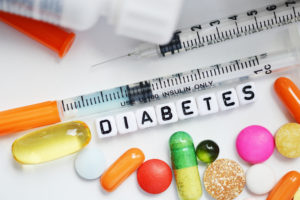 You don’t often hear men complain about too much testosterone. In fact, most would wouldn’t mind a little more. But the story is quite different for women.
You don’t often hear men complain about too much testosterone. In fact, most would wouldn’t mind a little more. But the story is quite different for women.
Whereas higher levels of testosterone are typically associated with health benefits in men, high testosterone could pose a series of health risks for women, including type-2 diabetes.
Advertisement
And if you’re shocked to learn that women have the sex hormone most commonly attributed to men and make features, you’re probably not alone. Everybody has testosterone. Men just have way more.
Men typically experience health risks when testosterone is low. There are some small risks for men when it is very high, but most men are better served by higher levels. Women, however, are in potential danger when levels get high.
So, what are “low,” “normal,” and “high” testosterone levels? It can be hard to say. Generally, the “normal” range for adult men is between 300-1200 nanograms per deciliter (ng/DL). The range for women is between 15-70 ng/dL. As you can see, there is a wide range for each gender.
A new study, published in Nature Medicine, showed that high testosterone in women was associated with a 37% increase for type-2 diabetes and a 51% risk for polycystic ovary syndrome.
High testosterone in women is also associated with higher levels of visceral fat, which is stored fat around organs and presents a number of health risks.
On the other hand, high testosterone was associated with a 14% lower risk of type-2 diabetes in men. Generally speaking, higher testosterone levels are typically associated with lower levels of body fat in men and higher muscle mass.
Advertisement
The increased muscle mass can support insulin sensitivity and reduce the risk for type-2 diabetes. Similarly, low testosterone levels in men are associated with higher levels of body fat and risk for metabolic conditions like high blood sugar and insulin resistance.
Men may want to boost testosterone levels by adopting a healthy diet, getting more activity, and adopting a muscle-building exercise routine. Women, on the other hand, should avoid trying to increase testosterone out of the “normal” range.
Meeting with your doctor to assess levels and come up with a management plan is recommended.
